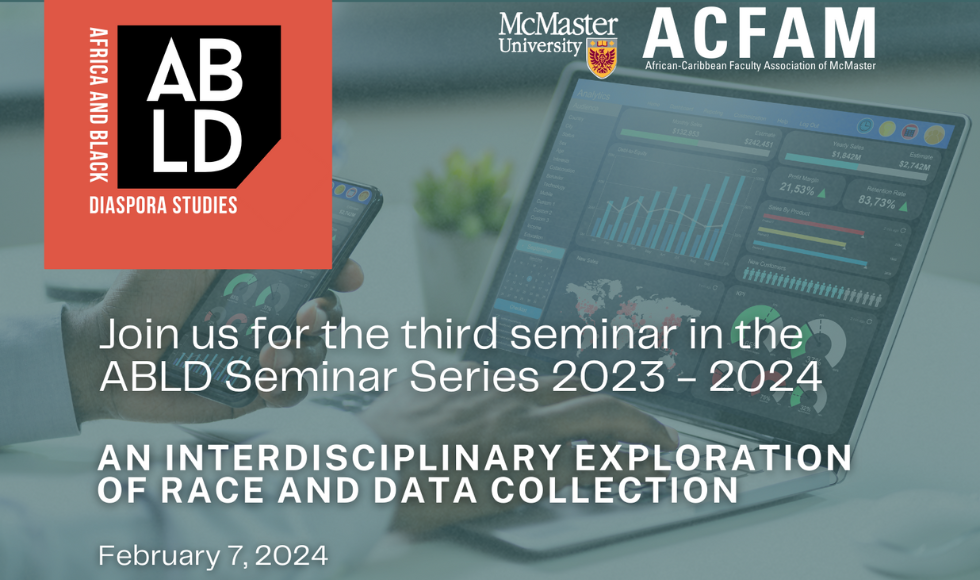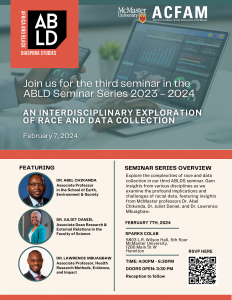Seminar series spotlights complexities of race data collection

Juliet Daniel is a pioneering biologist and distinguished cancer researcher. Abel Chikanda is a human geographer with a focus on international development. Lawrence Mbuagbaw leads research on optimizing outcomes for key populations living with HIV.
All three will share how the complexities of race and data collection impact their work at a seminar held on campus this week.
The event is part of a monthly seminar series at McMaster that aims to forge stronger ties between students, community members and Black scholars from across disciplines.
Daniel, who studies an aggressive sub-type of breast cancer that has been found to disproportionately affect young Black women, says conversations around race — while difficult — are essential to advancing research and addressing disparities in patient outcomes.
“When I started my research, no one talked about the predisposition of Black people to cancers, let alone breast cancer,” says Daniel. “If I had not gone to one conference and heard in a researcher’s talk that Black women were disproportionately dying of triple negative breast cancer, I might not be doing this research.”
Daniel is a co-founder of the African Caribbean Faculty Association of McMaster (ACFAM) Network, and the Canadian Black Scientists Network. She will receive Onyx Magazine’s2024 Woman of the Year award at the annual Women on the Move awards next month.
A longtime advocate for race-based data collection, she points to the huge benefits it can bring society, and to the lives of patients.
“If we recognize and study how different demographics are affected by diseases — whether it’s cancer or heart disease or diabetes — we can investigate whether there are molecular genetic or other factors contributing to that. Ultimately it will help us to tease apart the disease and its causes.”
What: ABLD Seminar Series: An Interdisciplinary Exploration of Race and Data Collection
When: February 7th, 2024, 4:00pm – 6:00pm
Where: Sparks CoLAB, 5803 L.R. Wilson Hall, 5th floor
Click here for information or to register
Chikanda, born and raised in Zimbabwe, says race and racial identity has occupied a meaningful space in his life and career as a researcher. The associate professor in the School of Earth, Environment & Society has spent the last two decades engaged in migration research in Southern Africa.
By sharing the barriers and realities he has faced in conducting research, he hopes to shed light on the oppression and challenges that people of colour continue to experience.
“As a human race, we have made huge strides towards ensuring racial equity but more still needs to be done,” says Chikanda. “It is […] our responsibility as scholars to uncover these structures of oppression and be the light that guides our society towards building a more inclusive world.”
Lawrence Mbuagbaw, an associate professor of Health Research Methods, Evidence, and Impact and a 2023 University Scholar, has contributed to the development of WHO guidelines on HIV, malaria and tuberculosis as a methodologist, systematic reviewer and technical resource person.
His talk at the seminar will focus on HIV and feature ten things researchers and community members should know about race data.
The next event in the series, entitled Spotlighting Emerging Scholar: Fresh Perspectives and Research Narratives, will take place on March 27th.



